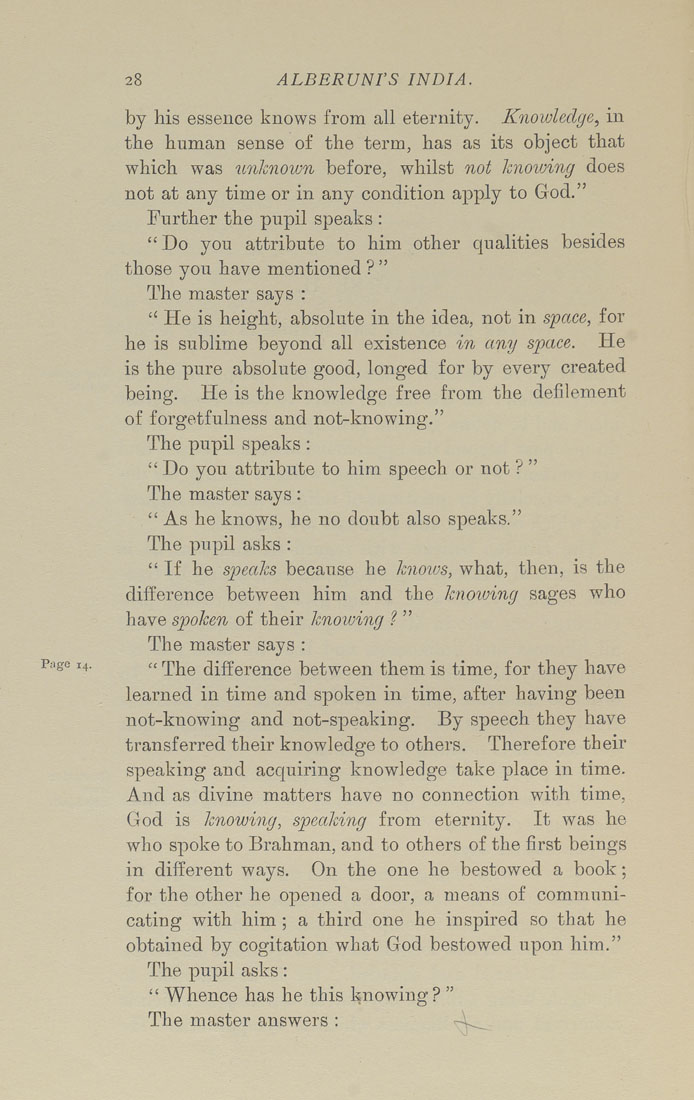Bīrūnī, Muḥammad ibn Aḥmad, Alberuni's India (v. 1)
(London : Kegan Paul, Trench, Trübner & Co., 1910.)
|
||
|
|
|
|
| Page 28 |

28 ALBERUNPS INDIA. by his essence knows from all eternity. Knowledge, in the human sense of the term, has as its object that which was unknoiun before, whilst not knowing does not at any time or in any condition apply to God." Further the pupil speaks : " Do you attribute to him other qualities besides those you have mentioned ? " The master says : " He is height, absolute in the idea, not in space, for he is sublime beyond all existence in any space. He is the pure absolute good, longed for by every created being. He is the knowledge free from the defilement of forgetfulness and not-knowing." The pupil speaks: " Do you attribute to him speech or not ? " The master says: " As he knows, he no doubt also speaks." The pupil asks : "If he speaks because he knmos, what, then, is the difference between him and the knoioing sages who have spoken of their knoioing 1" The master says : Pngc 14. u rpj^Q difference between them is time, for they have learned in time and spoken in time, after having been not-knowing and not-speaking. By speech they have transferred their knowledge to others. Therefore their speaking and acquiring knowledge take place in time. And as divine matters have no connection with time, God is knowing, speaking from eternity. It was he who spoke to Brahman, and to others of the first beings in different ways. On the one he bestowed a book; for the other he opened a door, a means of communi¬ cating with him ; a third one he inspired so that he obtained by cogitation what God bestowed upon him." The pupil asks: " Whence has he this knowing ? " The master answers : A^ |
| Page 28 |







